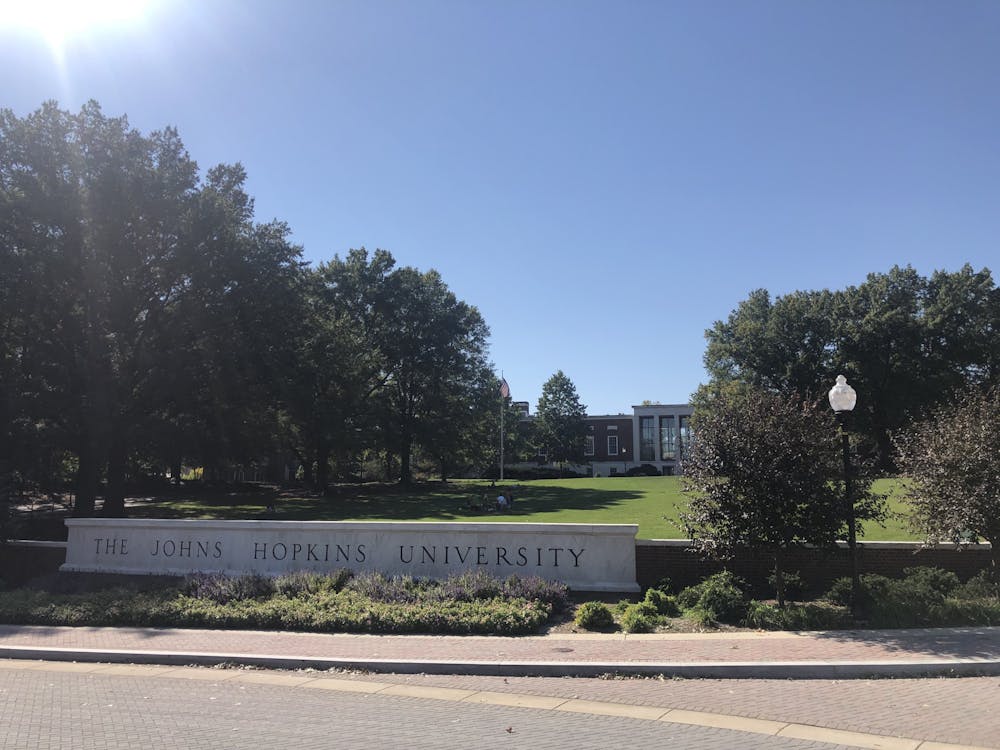The Student Government Association (SGA) heard presentations on climate change and voter engagement at its weekly meeting on Tuesday, Oct. 6.
Sophomore Marisa Thomas presented the Student Climate Action Coalition Bill Proposal on behalf of the MaryPIRG Student Climate Action Coalition (MSCAC). SGA was then asked to sign a letter of support to help the bill get passed in the Maryland General Assembly.
Thomas explained that MSCAC is a student group whose objectives are to promote climate justice and encourage public universities in Maryland to reach carbon neutrality by 2030. Founded at the University of Maryland, MSCAC includes students from universities across the state.
“We know this is an ambitious goal, so we’re also offering offsets, which are less ideal but another solution to reach carbon neutrality,” Thomas said.
Offsets are post-emissions solutions, such as planting trees, that result in the reduction of net carbon emissions, offsetting direct and indirect emissions from participating institutions.
While reactions to the initiative were favorable, there was debate on whether Hopkins had the grounds to push other universities to reform their energy consumption.
Freshman Class President Kobi Khong questioned if there were already similar rules in place regarding sustainable energy at Hopkins.
“It’s kind of preachy if we tell other colleges to do it if we don’t [ourselves],” he said.
Thomas responded that evidence of the University’s efforts can be found in its recent purchase of renewable energy from Exelon, as well as their 2008 Climate Action Plan and its goal to reduce carbon emissions by 51% by 2025.
“I’m hoping it [the bill] will also motivate us,” she said. “If Hopkins sees the public universities do it, then they will feel pressured into taking further action.”
Representatives from Salisbury University, St. Mary’s College of Maryland and the University of Maryland, Baltimore County have already signed the letter.
Thomas acknowledged that financial difficulties caused by COVID-19 may make it more difficult for universities to achieve carbon neutrality but stressed the importance of tackling climate change despite these obstacles.
“We all know that climate change is here right now, and we have to start taking action,” she said. “It’s harder to get universities to switch to renewable energy completely. We’re just hoping that [since they] are centers of education... they will practice what they preach and work to reduce their own carbon emissions.”
Representatives also discussed how Hopkins could voice its support for the initiative while taking responsibility for the damage it has done to the climate in the past.
The letter was ultimately tabled.
In addition, Civic Engagement Committee (CEC) Co-Chairs Senior Class Senator Keidai Lee and Junior Class Senator Grace Wang presented on initiatives pertaining to Hopkins.
Lee screened the trailer for the CEC’s latest project, “How to Vote on Planet Earth,” which consists of commentary on international governments from diverse storytellers paired with visuals of cultural recipes.
Junior Class Senator Megan Chien praised the CEC for its execution of the project.
“It’s a very fine line to walk between something being cheesy and something being motivational,” she said. “You guys managed to make a really inspiring video while keeping it very grounded.”
A screening of the full video took place over Zoom on Saturday, Oct. 10. Members of the Hopkins Votes initiative were present to assist attendees with the process of casting their ballots.
Wang also spoke about the CEC’s partnership with Hopkins Votes during her presentation on the Voting Engagement Ambassador Program. The program aims to increase voter engagement for the 2020 election via support from student organization leaders.
“The requirements of this program are to commit your organization to 100% eligible voter participation,” Wang said. “This means that everyone who can vote has registered and then also has voted.”
Organizations will be offered bonuses for distributing information to their members regarding important election dates and completing the program criteria by election night.
According to Wang, voter turnout is especially critical for the upcoming election.
“In 2016... we found that only 42% of eligible undergraduate Hopkins students actually voted,“ she said. “We’re really striving for 100% this year.”
SGA also confirmed Junior Class Senator Talal Widatalla as a member of the Student Services Committee.





